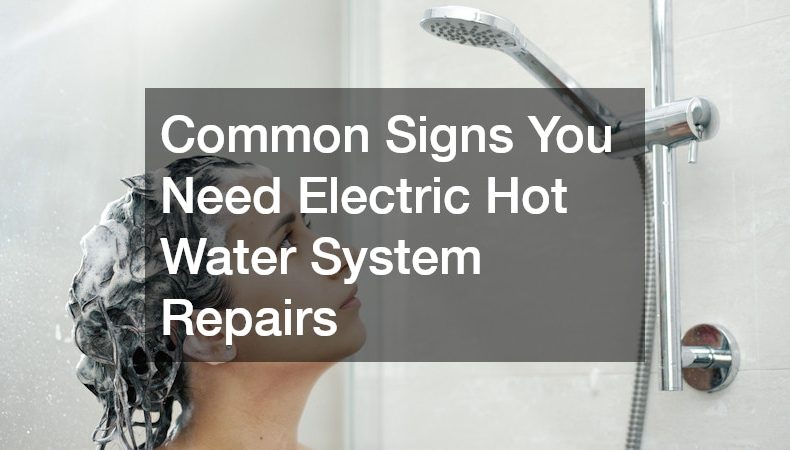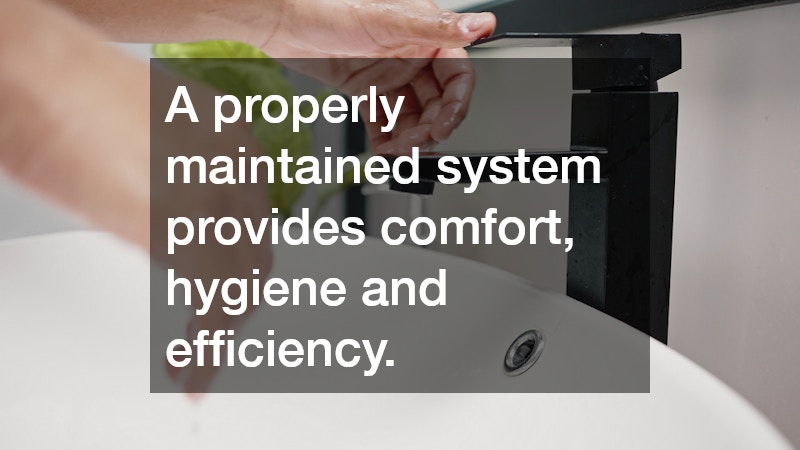
Common Signs You Need Electric Hot Water System Repairs
Hot water is essential to daily life, whether for showering, cleaning or cooking. When an electric hot water system starts to fail, it can disrupt comfort, routine and safety in the home. Identifying the early signs of problems can help avoid costly breakdowns and extend the life of the system through timely electric hot water system repairs.
Homeowners often ignore or misinterpret small issues until they turn into major complications. By knowing what to look for, you can act early and seek the right repairs.
Below are common signs your electric hot water system may need attention.
Inconsistent Water Temperature & Pressure
Fluctuating water temperature is one of the first signs that something isn’t right. If your shower switches from hot to cold without warning, or your taps no longer deliver a steady temperature, the issue could be related to a malfunctioning thermostat, heating element or wiring fault.
Similarly, inconsistent water pressure is a red flag. If the flow weakens or pulses when using hot water, sediment build-up in the tank or issues with valves could be to blame. In electric units, these types of problems may escalate quickly without professional repair. Acting early prevents complete failure of the system.
Discoloured Water & Strange Odours
When the hot water begins to appear rusty, cloudy or has a metallic smell, it could indicate internal corrosion or sediment in the tank. Over time, mineral deposits can form inside the unit, especially in hard water areas. These particles may cause damage to the tank lining or elements, resulting in inefficiency or leaks.
Odours can also point to bacterial growth, especially if the water smells like sulphur or rotten eggs. While these issues are unpleasant, they are often reversible if caught early. A technician can flush the system, replace the anode rod or make other necessary adjustments before the damage becomes irreversible.
Leaks & Pooling Around the Unit
One of the most visible and concerning signs is water leakage. If you notice moisture around the base of your hot water system, don’t ignore it. Leaks could stem from a range of causes, including a cracked tank, loose connections or pressure valve failure.
Leaks not only waste water but can also damage the surrounding floors or walls. In worst-case scenarios, unchecked leaks may lead to mould growth or structural concerns. Any pooling water around the unit should prompt immediate inspection and repair. A qualified plumber or technician can identify the exact source and fix it before it worsens.
Strange Noises & Unusual Operation
Electric hot water systems are designed to operate quietly. If yours starts making rumbling, popping or hissing sounds, it could mean there’s a build-up of sediment heating unevenly. These noises are often an early warning of problems within the tank or elements.
In some cases, electrical faults can also cause tripping of circuit breakers or unusual behaviour like the system cycling on and off irregularly. This may point to thermostat failure or wiring issues that can be hazardous if left unchecked. It’s important to have these matters addressed by a professional to maintain safety.
Higher Energy Bills & Reduced Efficiency
An unexplained spike in your electricity bill might not be due to higher usage. An ageing or faulty hot water system often has to work harder to maintain temperature, leading to higher power consumption. Components like the heating element or thermostat may be malfunctioning, reducing efficiency without any obvious physical signs.
Poor system performance means longer heating times, wasted energy and more wear on the unit. Addressing the root cause early can prevent ongoing cost increases and improve the performance of the system over time.
Age of the System & Maintenance History
Many homeowners forget that their hot water system has a limited lifespan. Most electric units last between 8 and 12 years depending on usage and maintenance. If yours is nearing the end of its expected life, even minor issues could signal it’s time for an assessment.
Regular servicing helps detect problems before they turn serious. If it has been years since your system was last inspected or serviced, it’s advisable to have a qualified professional check it. Proactive maintenance can identify signs of wear, corrosion or electrical issues that may not be immediately obvious.
When to Seek System Repairs
Not all issues mean you need a new unit. In many cases, a well-timed service or part replacement is enough to restore the unit’s performance. Seeking professional electric hot water system repairs ensures any faults are safely and effectively addressed by someone familiar with Australian standards and equipment.
Homeowners should keep track of any changes in performance, appearance or noise from the unit. Even minor problems can escalate if ignored, leading to full system failure or even water damage. Addressing issues early often results in a more affordable and longer-lasting fix.
Hot water is something many take for granted until it stops working. Whether it’s discoloured water, a strange noise or a sudden drop in temperature, knowing the warning signs of trouble helps avoid bigger issues down the track. Many electric hot water system repairs are straightforward when handled early, saving both money and stress.
A properly maintained system provides comfort, hygiene and efficiency. Regular inspections, an awareness of common warning signs and swift repairs when needed will keep your household running smoothly. If you suspect your system may be underperforming, it’s worth calling in a professional to inspect and resolve any underlying problems before they worsen.

Calendar
| M | T | W | T | F | S | S |
|---|---|---|---|---|---|---|
| 1 | ||||||
| 2 | 3 | 4 | 5 | 6 | 7 | 8 |
| 9 | 10 | 11 | 12 | 13 | 14 | 15 |
| 16 | 17 | 18 | 19 | 20 | 21 | 22 |
| 23 | 24 | 25 | 26 | 27 | 28 | 29 |
| 30 | 31 | |||||